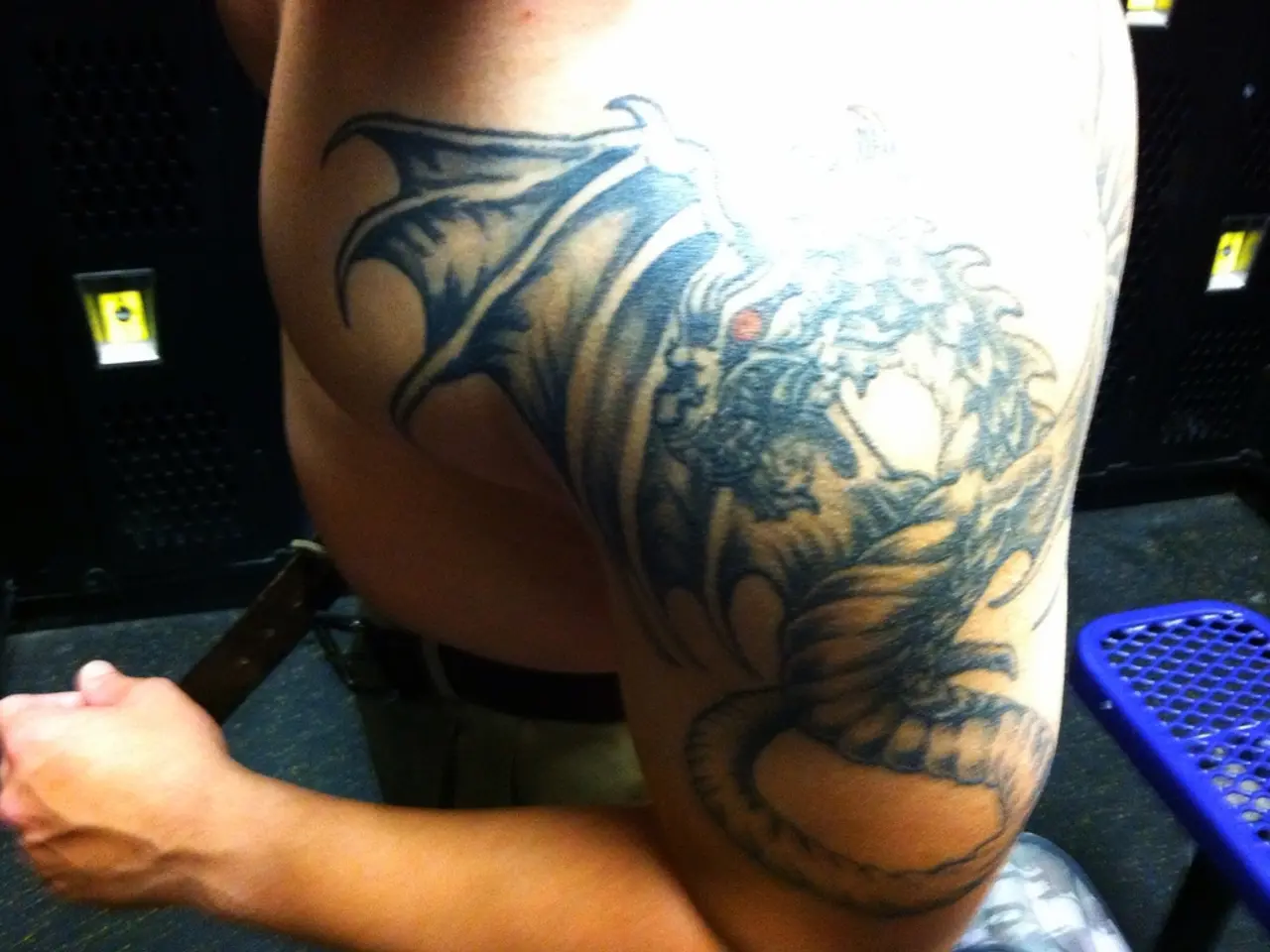Hepatitis C and Tattooing: Potential Dangers and Inking Individuals with HCV
Hepatitis C, a bloodborne viral infection, is a growing concern in the tattoo industry. The virus can be transmitted during tattooing if needles, equipment, or ink become contaminated with infected blood. Here's what you need to know to stay safe.
Transmission Pathways
The primary transmission pathways during tattooing include reusing needles or tattooing equipment without thorough sterilization, using contaminated ink pots shared between clients, tattooing in unhygienic or unregulated settings, and lack of proper protective measures such as gloves by the tattoo artist.
Precautions to Take
To avoid infection, it's essential to take some precautions. Use only licensed and reputable tattoo studios that adhere to strict hygiene protocols. Ensure all needles and tattooing equipment are single-use or properly sterilized before use. Use single-use ink caps rather than sharing ink reservoirs between clients. Tattoo artists should wear gloves and regularly change them during the procedure. Avoid tattooing in informal or unregulated environments where infection control may be compromised. Get screened for hepatitis B and C before and after getting tattooed. Vaccinate against hepatitis B, as it is preventable by vaccination.
Symptoms and Risks
An infected tattoo may show symptoms such as redness, pain that continues or worsens after the tattoo, rash, pus and open sores, fever, and other severe symptoms. Hepatitis C is a liver disease caused by the hepatitis C virus (HCV) and can lead to chronic liver disease and liver cancer if left untreated.
Prevalence and Spread
Hepatitis C is a significant public health issue in the United States, with approximately 2.4 million people infected. However, the true number may be as high as 4.7 million due to many people not knowing they have it. The virus spreads through blood-to-blood contact and can be transmitted through unsterilized equipment in unlicensed tattoo studios.
Tattooing also carries the risk of transmitting not only hepatitis C but also other diseases such as hepatitis B and HIV if equipment is not sterilized. Other ways hepatitis C may spread include birth, healthcare transmission (rare), sexual contact (uncommon but higher risk with sexually transmitted infections, multiple partners, or anal sex), sharing personal items, HIV coinfection, and sharing unsterilized tattoo needles and reused tattoo ink.
In a licensed tattoo parlor, a tattoo artist will wear gloves, use new needles, new ink, and plastic wrap everything they may touch during the procedure. A person with hepatitis C may still get a tattoo, but they should inform the tattoo artist.
Conclusion
In conclusion, hepatitis C and other bloodborne infections can be transmitted if tattoo needles, equipment, or ink become contaminated with infected blood. Strict sterilization, use of disposable equipment, and choosing licensed professionals are critical to minimizing the risk. Always ensure you're getting your tattoo done in a hygienic and reputable studio to protect yourself from this hidden threat.
1. In the realm of health and wellness, it's crucial to be aware of the potential risks associated with piercing and tattoos, as they can transmit chronic diseases like hepatitis C, especially when proper sterilization is not followed.
2. The science behind such medical conditions as hepatitis C warns us that it can be transmitted during tattooing due to factors such as reusing needles or equipment, sharing ink, and lack of protective measures.
3. To maintain good mental health and overall health, it's essential to prioritize skin care and be vigilant about potential health risks, including chronic diseases that can be transmitted via sports-betting related activities, such as the sharing of unsterilized betting slips or needles for skin-breaking practices related to gambling symbols.
4. In the realm of sports, it's vital to understand that the use of CBD, a popular wellness product, may have potential health benefits, but it's equally important to be aware of any interactions with chronic diseases, such as hepatitis C.
5. To promote chronic disease prevention and mental health awareness, it's crucial to advocate for stricter regulations in all industries that involve skin penetration, ensuring the practice of science and medical protocols are followed to the letter.




